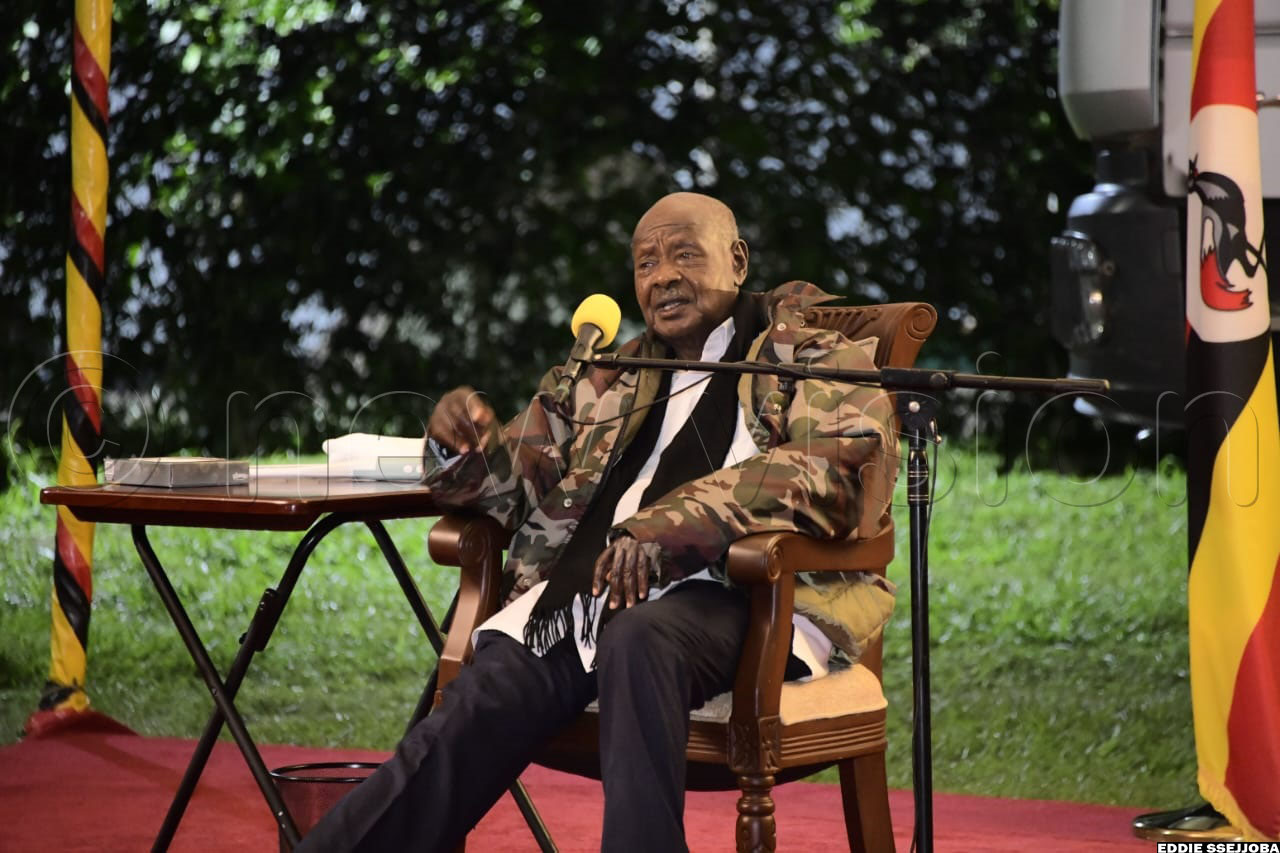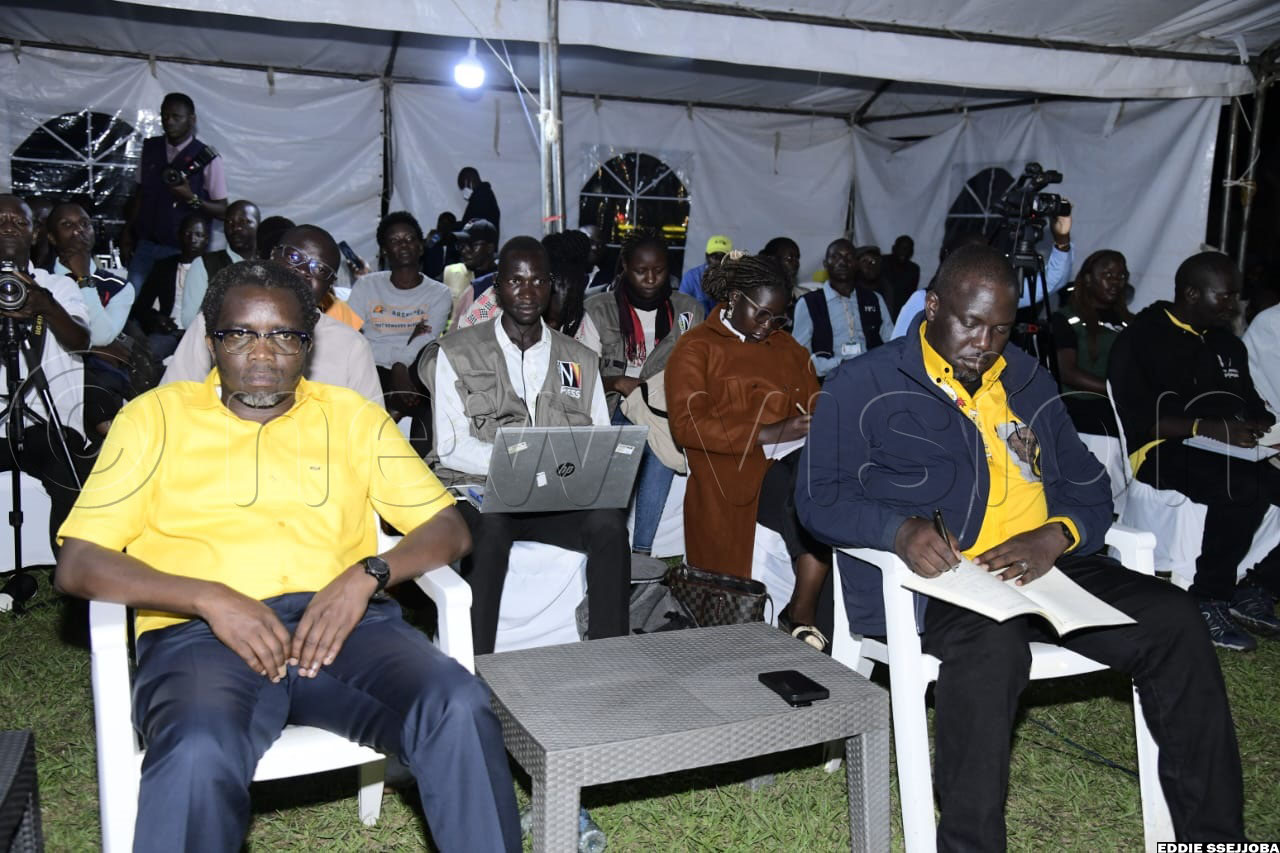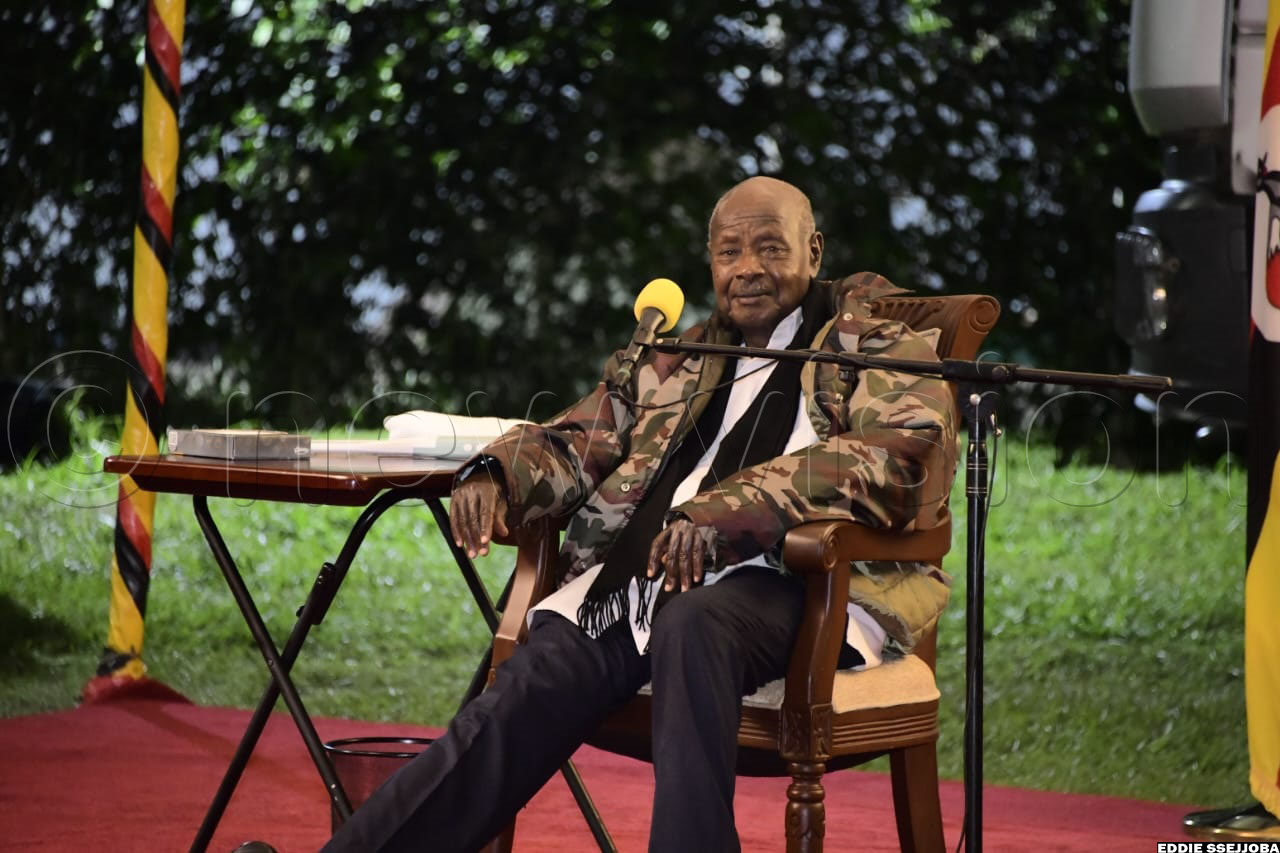Politics
Elections 2026: Museveni says Uganda is world’s most democratic nation
The President told the Press in Gulu on Thursday night that the country achieved its most democratic credentials on account of electing the greatest number of citizens for different elective positions from grassroots to the highest office of the President.
Elections 2026: Museveni says Uganda is world’s most democratic nation
By: Peter Labeja, Journalists @New Vision
_____________________
Uganda is now the World’s most democratic country, says President Yoweri Kaguta Museveni, who’s running for a seventh consecutive term of office in the 2026 general elections.
The President told the Press in Gulu on Thursday night that the country achieved its most democratic credentials on account of electing the greatest number of citizens for different elective positions from grassroots to the highest office of the President.
“Because our democracy is a real democracy. Not a threat as they do in other countries. We represent all the broad sections of the population. We have the Constituency Members of Parliament, where every adult participates in their elections,” the President stated.
He said there are also affirmative action Members of Parliament, such as the district Woman Member of Parliament, people with disabilities, the youth, workers, the soldiers and the elderly now.
“I would like to know which country would be more democratic than that. Then we have very strong local government electing people from the grassroots – village, parish and the sub-county,” said the President.
He noted that the work that is left is for the leaders to know what to do, rather than being populist, giving money to the people and ending up in debt. He stated that because all the sections of the population are represented, the elected leaders should focus on checking government programs such as the Parish Development Models.
Recalling that by 1962, there were only two or three female Members of Parliament out of the 90 members of Parliament then, he stressed that it was wrong for half of the population to be represented by only three women.
He concluded that “Uganda’s democracy is broad-based, the best in the world and should be studied by anyone interested in democracy.”
Eliminating corruption
On tackling Corruption, the President said the foundation for eliminating corruption was laid during the 1985 National Resistance Army bush war after studying the government of the day.

He stated that those who were running that government were very corrupt, including the Gombolola Chiefs, Muluka Chiefs, Kyazza Chiefs and the District Commissioners, as well as the Veterinary staff and the civil servants.
To stem that, he suggested the elections of the resistance councils, currently known as the LCs - LC1, LC2, LCV, Councillors and the Members of Parliament.
According to the President, the citizenry should demand from their elected leaders the elimination of corruption. He also castigated government employees such as district internal officers and the parish internal security officers for letting down the people.
“The citizens should remove those unable to eliminate corruption in public service,” adding that a strong trap to eliminate corruption is already in place.
He said the real structural anti-corruption mechanism is the Local Council system and the people demanding what is rightfully theirs.
Weak constitution
According to the President, Uganda’s Constitution is still weak to effectively police a strong democracy. He said the constitution is therefore failing to achieve impressive economic growth and a strong democracy because it does not propose the disqualification of those who encroach on wetlands and are enemies of the people.

“Those preaching tribalism should be managed by correct policies and dedications to eliminate the reactionary groups,” Museveni said, adding that unlike the Uganda People’s Congress Party, which supported the idea of Federalism, the National Resistance Movement never did, to control tribalism in the country.
Uganda democracy report
On July 05, 2024, the Afrobarometer research report indicated that Ugandans are ranked high among Africans in their commitment to democracy. Relatedly, fewer than half of them said they are getting the democracy they want.
The report also revealed that the majority of Ugandans express full commitment to democracy, meaning they prefer democracy over any other political system and reject dictatorship, one-party rule, and military rule. Since 2012, this commitment has ranged from 42% to 63%, registering fluctuations around election years.
The Afrobarometer is a Pan-African, independent, non-partisan research network that measures public attitudes on economic, political, and social matters in Africa.